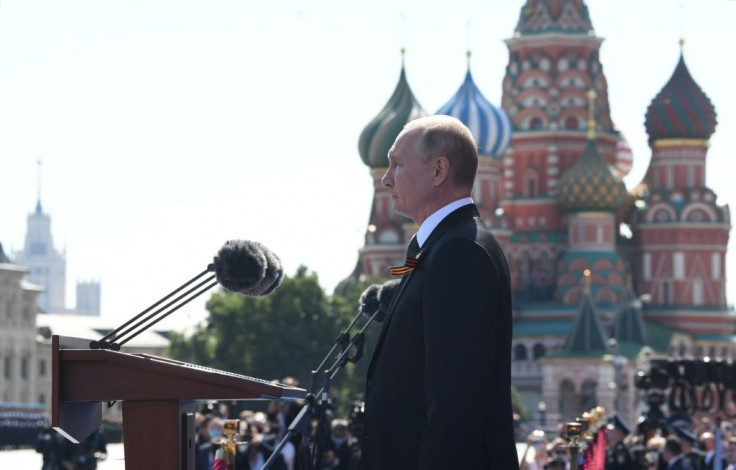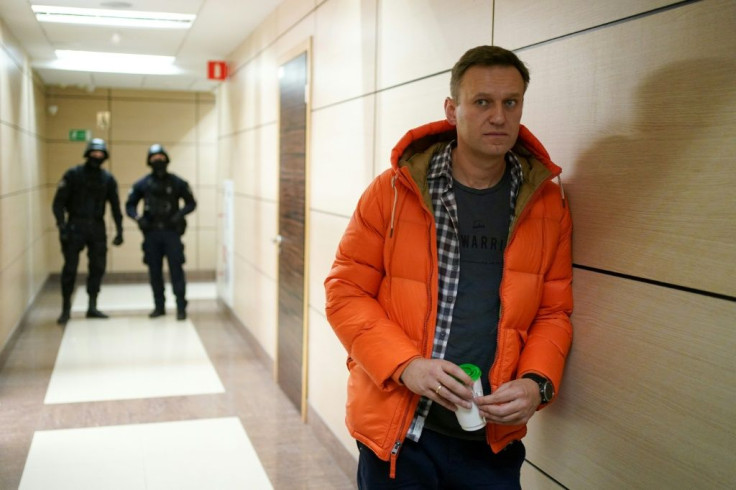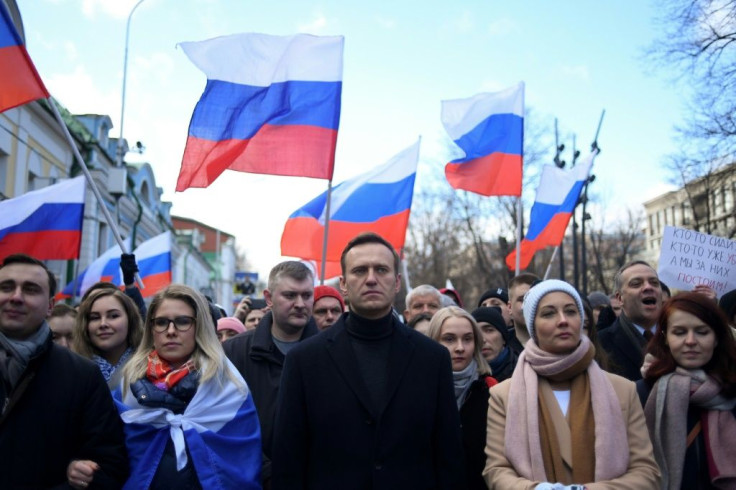Russia's Opposition Flounders As Putin Changes Constitution
Russia's opposition is denouncing this week's vote on President Vladimir Putin's constitutional reforms as a joke, pointing out that copies of the amended basic law are already on sale in Moscow bookshops.
From liberal reformers to Communists, Kremlin critics say the vote -- which started last week and ends on Wednesday -- is a thinly veiled attempt to keep Putin, 67, in power for life.
But other than tepid calls to boycott or vote "No", the opposition has done little to actively fight the changes.
Russia's top opposition figure Alexei Navalny, who last summer rallied thousands against suspected voter fraud in Moscow, has also shown little interest in combating the reforms.
Experts say deep divisions and shrewd moves by the Kremlin are keeping opponents from mounting any serious opposition to Putin's plans.

"A lack of resources, a lack of new faces, a lack of excitement, inspiration and faith -- that's what I think are the main reason for the problems," said Vitali Shkliarov, a Harvard University fellow and political adviser who has worked with the Russian opposition.
"There have been a million opportunities to prove yourself" since Putin announced the reforms, he said. But after years of repression, Kremlin critics feel dispirited.
"The Russian opposition does not believe in itself."
Putin proposed amending the constitution in January and later approved a last-minute addition that would reset presidential term limits to zero, potentially allowing him to serve two more six-year terms after his mandate expires in 2024.
They also include political changes like strengthening the role of parliament and a series of populist measures such as a requirement to adjust state pensions for inflation and an effective ban on gay marriage.

Opinion polls show a majority of Russians support the social amendments but there is less enthusiasm for the political reforms.
The amendments have already been approved by parliament but Putin called the public vote in an effort to boost their legitimacy.
Initially planned for April 22, the ballot was postponed by the coronavirus epidemic and analysts say its quick scheduling and then rescheduling is part of the reason the opposition has been unable to mount a strong campaign.
Tatyana Stanovaya, founder of analysis firm R. Politik, said the Kremlin also pulled the rug from under its opponents when it gave Russians the choice to vote only "yes" or "no" on the entire package of changes, instead of individual amendments.

Opposing popular measures such as better pensions and minimum wages could leave Kremlin opponents vulnerable, she said.
"In such a situation it's hard to argue against the amendments," she told AFP. "The opposition is in a bind."
Liberal party Yabloko has urged Russians to stay away from the "illegal, anti-constitutional and fake vote".
The Communist Party is calling on its supporters to vote "No", an unusual move for a party that often toes the Kremlin line.
Navalny, a 44-year-old anti-corruption campaigner who has organised the biggest anti-Kremlin demonstrations in recent years, has slammed the reforms as a "constitutional coup" but has done little to forcefully oppose them.
He has said debate about whether to participate in the plebiscite is pointless because lawmakers have already backed the amendments and the vote will be a fraud.
"What we are left with is a circus with balloons," he wrote on Telegram.
While many opposition supporters have been frustrated by its inability to offer a more decisive plan of action, some said change will come sooner or later.
Mikhail Samin, a 20-year-old programmer who took part in anti-government protests in Moscow last summer, pointed to Putin's approval ratings, which fell to a historic low of 59 percent in April, according to a poll by the Levada Centre.
"The opposition is moving in the right direction," Samin said. "Society is moving in the right direction."
Navalny has said that, instead of focusing on Putin's constitutional changes, Russians should prepare for regional elections in September and parliamentary polls due in 2021.
Last year pro-Kremlin candidates suffered losses in Moscow city polls after Navalny called for tactical voting to oppose Putin loyalists.
Analyst Stanovaya said it was time for Navalny to save his strength for another battle.
"Now is not his time."
© Copyright AFP 2024. All rights reserved.




















